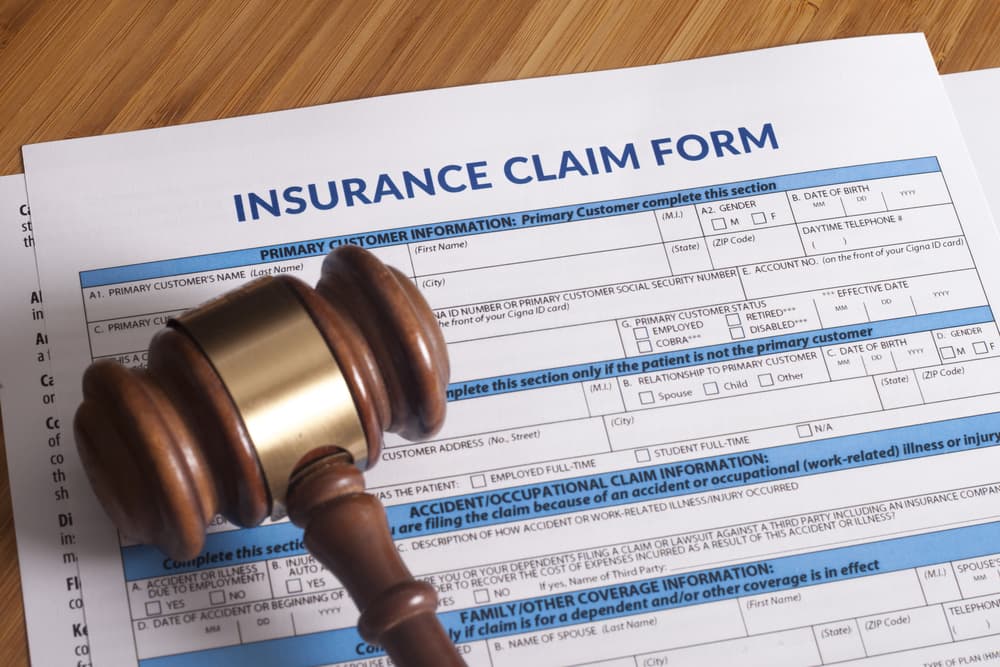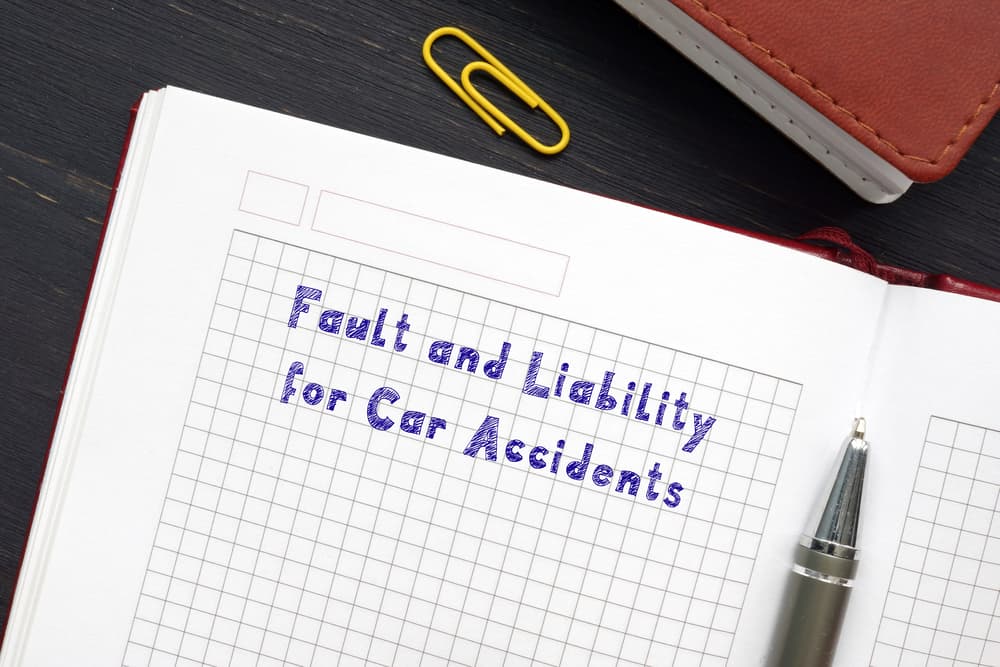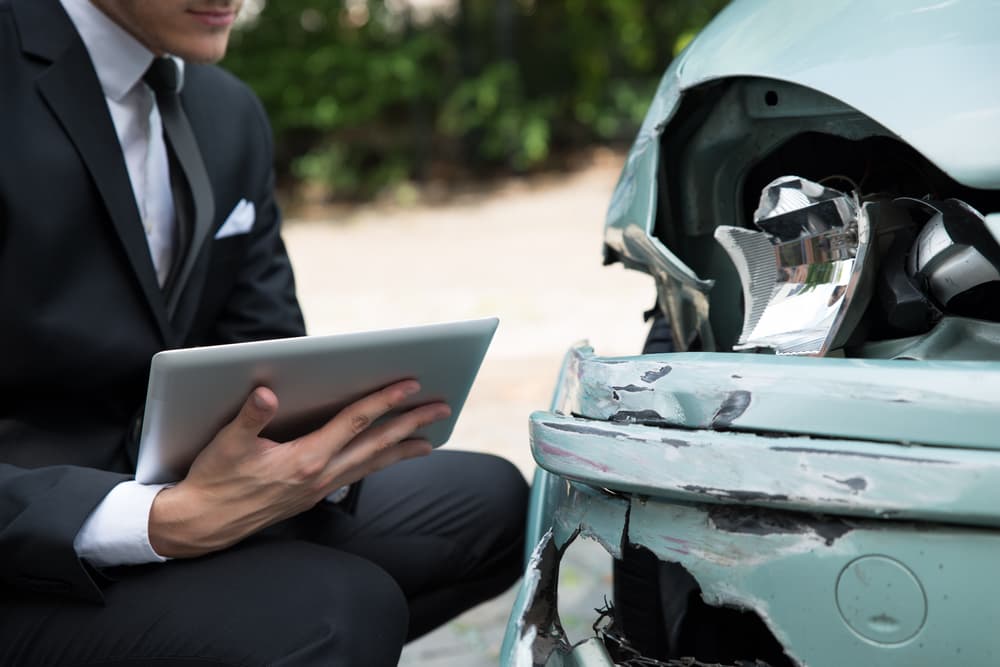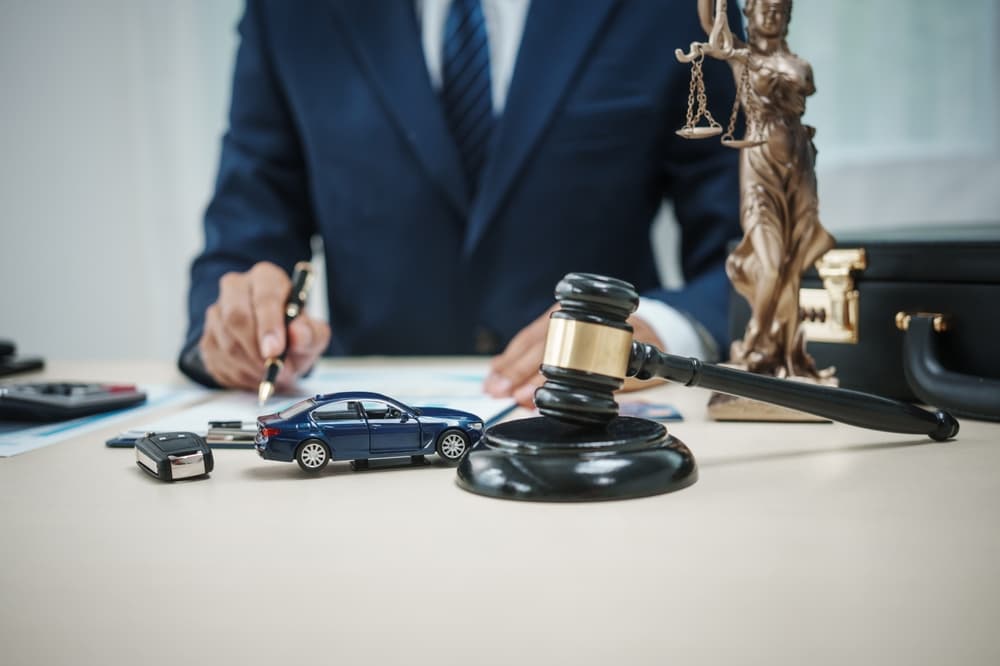Car accidents can lead to significant physical injuries, emotional distress, and financial losses, leaving victims overwhelmed and unsure of their next steps. Beyond the pain of recovery and the shock of the event, victims often face mounting medical bills, unexpected time off work, and the stress of repairing or replacing a damaged vehicle. In most cases, proving who was at fault is critical to securing the compensation needed to alleviate these burdens.
Determining fault is not just about assigning blame; it directly impacts your ability to recover the financial support necessary to rebuild your life. Whether dealing with uncooperative insurance companies or disputing conflicting accounts of the accident, understanding how to establish fault is essential for dealing with the aftermath of a collision. You can focus on healing and moving forward by identifying who is responsible for covering the costs of medical bills, property damage, and other losses. If you have suffered an injury in a car accident, you should understand how to prove fault, the types of evidence that can strengthen your claim, and the vital role an experienced car accident lawyer can play in ensuring your rights are protected.
The Importance of Proving Fault
Proving fault is the cornerstone of any car accident claim. The at-fault party’s insurance company or the court system determines liability based on evidence, and compensation is awarded accordingly. When the fault is disputed, the process becomes more involved, requiring detailed investigations and legal oversight to build a compelling case.
Fault and Insurance Claims

Most states operate under fault-based insurance systems, meaning the driver responsible for causing the accident must compensate the other party. Establishing fault is imperative in these systems, as the at-fault driver’s insurance will be required to cover damages.
In contrast, some states have no-fault insurance systems, where drivers must file claims with their own insurance companies, regardless of who caused the accident. However, even in no-fault states, proving fault becomes important when injuries are severe enough to exceed the limits of personal injury protection (PIP) coverage.
Legal Liability
To hold another party legally responsible for a car accident, you must prove that their negligence caused the crash. Negligence involves four elements:
- Duty of Care: The at-fault driver had a responsibility to act reasonably and follow traffic laws.
- Breach of Duty: The driver failed to uphold their duty of care (e.g., speeding or running a red light).
- Causation: The breach of duty directly caused the accident.
- Damages: The accident resulted in measurable harm, such as injuries or property damage.
Steps to Prove Fault After a Car Accident
When you hire a reputable car accident attorney, they will take several detailed steps to prove fault in your car accident. These steps can involve countless hours of work and research, which is one reason why it’s in your best interest to hire an attorney to represent your injury claim. Here is how your attorney will work to prove the fault of the other party:
Evidence from the Accident Location
The evidence from the accident scene can significantly impact proving fault. The sooner you contact a car accident attorney, the sooner they can begin collecting such evidence. They or someone on their behalf (such as an accident reconstructionist) may visit the location of your accident to take pictures and make specific observations about the area.
Obtain the Police Report
Police reports are one of the most influential pieces of evidence in car accident claims. They often include:
- Statements from both drivers and witnesses
- The officer’s observations about the scene
- Any traffic violations or citations issued
- The officer’s opinion on who was at fault
Most insurance adjusters and courts give significant weight to police reports, making them a valuable resource for proving fault. If you don’t already have a copy of the police report from your accident, your attorney can obtain one.
Analyze Traffic Laws
Understanding local traffic laws can strengthen your case. For instance:
- If another driver ran a red light, failed to yield, or violated other traffic laws, this breach of duty establishes negligence.
- Diagrams or photographs showing the positioning of vehicles can help demonstrate how the at-fault driver failed to follow the traffic laws.
Use Witness Testimony
Independent witness statements can provide unbiased accounts of the accident. Witnesses can confirm details such as:
- Which vehicle ran a red light or stop sign
- Whether a driver was speeding or weaving through traffic
- Observations about road conditions or visibility
Your lawyer can contact witnesses to obtain formal statements or affidavits that support your claim.
Consult Accident Reconstruction Experts

In complex cases, accident reconstruction experts may be necessary to establish fault. These professionals analyze physical evidence, such as skid marks, vehicle damage, and debris patterns, to determine how the accident occurred.
Accident reconstruction reports are helpful in cases involving multiple vehicles, disputed liability, or catastrophic injuries.
Use Surveillance or Dashcam Footage
Video evidence from traffic cameras, nearby businesses, or dashcams can provide indisputable proof of fault. Footage can capture critical details such as:
- Traffic violations
- The speed of the vehicles
- The sequence of events leading up to the crash
If you or your lawyer suspect video footage exists, you will need to act quickly to preserve it. Many surveillance systems overwrite recordings after a short period.
Document Your Injuries
Medical records are vital for proving the extent of your damages and linking your injuries to the accident. Seek medical attention immediately after the crash, even if you feel fine, as some injuries may not immediately show symptoms.
Keep a detailed record of:
- Doctor’s visits
- Diagnoses and treatments
- Prescriptions
This documentation strengthens your case by demonstrating the physical and financial impact of the accident. Your attorney can obtain your medical records. Please provide them with any documentation you have and journals you might have kept.
Types of Evidence That Strengthen Fault Claims
The strength of your car accident claim depends on the quality of your evidence. Here are the most critical types of evidence:
Physical Evidence
- Vehicle damage
- Skid marks or debris on the road
- Traffic signs or signals that were ignored
Eyewitness Testimony
Neutral third parties who witnessed the accident can provide credible accounts to support your claim.
Photographic and Video Evidence
Visual evidence is often the most compelling, as it provides an unbiased view of the accident scene and events.
Medical Records
Documentation of injuries and treatment demonstrates the severity of harm caused by the accident.
Expert Reports
Accident reconstruction experts and medical professionals can provide authoritative opinions to support your case.
Challenges in Proving Fault
Proving fault isn’t always straightforward. Some common challenges include:
- Disputed Liability: The at-fault driver may deny responsibility, complicating the claims process. Insurance companies often intervene to minimize payouts.
- Lack of Evidence: Insufficient evidence can weaken your case. For example, failing to document the scene or obtain witness statements can make it harder to prove fault.
- Insurance Company Tactics: Insurers may use delay tactics, question your injuries, or argue that you were partially to blame. An experienced lawyer can counter these strategies.
How a Car Accident Lawyer Can Help Prove Fault
Proving fault after a car accident is a challenging process that requires legal knowledge and investigative skills. A car accident lawyer provides invaluable support by:
- Gathering Evidence: Your lawyer will collect and analyze all available evidence, including police reports, medical records, and surveillance footage.
- Interviewing Witnesses: Qualified car accident attorneys have the resources to track down witnesses and obtain formal statements that strengthen your case.
- Consulting Experts: Lawyers often work with accident reconstructionists, medical professionals, and other experts to build a compelling argument for liability.
- Negotiating with Insurance Companies: Insurance companies prioritize their bottom line, often offering low settlements or disputing claims altogether. A lawyer negotiates aggressively to secure the compensation you deserve.
- Representing You in Court: If a settlement cannot be reached, your lawyer will represent you in court, presenting evidence and arguing your case to a judge or jury.
Steps to Take After a Car Accident
Taking the proper steps after a car accident is critical for protecting your health, legal rights, and ability to prove fault. What you do immediately following a collision can significantly impact your claim and the compensation you receive. Here’s a detailed look at the steps you should take:
Seek Medical Attention
Your health should always be your top priority after a car accident. Even if you feel fine immediately following the collision, seeking medical attention as soon as possible is essential. Some injuries, such as whiplash, concussions, or internal injuries, may not present symptoms right away but can become serious if left untreated.
- Follow-up Treatment: Visit a doctor for a thorough evaluation, even if you don’t require emergency care. A medical professional can identify injuries that may not be immediately apparent and recommend appropriate treatment plans.
- Consistency in Treatment: Attend all follow-up appointments and adhere to your doctor’s recommendations. Gaps in treatment can give insurance companies an opportunity to argue that your injuries are not as severe as claimed or were not caused by the accident.
Notify Your Insurance Company

Reporting the accident to your insurance company promptly is a key step in initiating your claim. Most policies require you to report accidents within a specific timeframe, so don’t delay.
- Provide Basic Facts: When notifying your insurance company, stick to the basic facts of the accident, such as the date, time, location, and parties involved. Avoid providing unnecessary details or speculating about the fault.
- Do Not Admit Fault: Even if you believe you may have been partially at fault, do not admit this to your insurance company or the other party’s insurer. Fault is determined through a formal investigation, and any statements you make can be used against you.
- Document Communications: Keep a record of all correspondence with your insurance company, including emails, letters, and notes from phone calls. It will help track the progress of your claim and ensure transparency.
Consult a Skilled Car Accident Lawyer
Contacting a knowledgeable car accident lawyer as soon as possible after the accident is one of the most important steps you can take. A lawyer can protect your rights, handle the details of your claim, and ensure that you receive fair compensation.
- Case Evaluation: A car accident lawyer will review the details of your case, including the police report, medical records, and evidence from the scene. They can identify the strength of your claim and outline your legal options.
- Dealing with Insurance Companies: Insurance adjusters often try to minimize payouts by disputing liability or undervaluing damages. A lawyer can handle all communications with insurance companies on your behalf, ensuring that you are treated fairly and that your claim is not unfairly denied or undervalued.
- Evidence Collection: Your lawyer will gather additional evidence to support your claim, such as accident reconstruction reports, surveillance footage, and expert opinions. It is particularly valuable if the fault is disputed or the case involves multiple parties.
- Negotiating Settlements: A skilled lawyer will negotiate with the at-fault party’s insurer to secure a settlement that adequately compensates you for your medical expenses, lost earnings, property damage, and pain and suffering. They will prepare to take your case to court if a fair settlement cannot be reached.
- Legal Guidance: Your lawyer will guide you through every step of the claims process, from filing paperwork to understanding deadlines and legal terminology. This support can reduce stress and ensure that you avoid common pitfalls that can harm your case.
Keep a Record of Damages
In addition to medical records, maintain a record of all expenses related to the accident. It includes:
- Repair or replacement costs for your vehicle.
- Rental car fees.
- Out-of-pocket expenses, such as transportation to medical appointments.
- Lost earnings from time missed at work.
Avoid Speaking to the Other Party’s Insurance Company
The at-fault party’s insurance company may contact you for a statement or offer a quick settlement. It’s best to let your lawyer handle these communications to avoid making statements that can harm your case.
Hire a Seasoned Car Accident Attorney Who Can Prove Fault on Your Behalf

Proving fault after a car accident is essential for securing the compensation you need to recover from your injuries and losses. The process can be complicated and time-consuming, from gathering evidence to consulting experts and negotiating with insurance companies. However, with the right approach and the support of an experienced car accident lawyer, you can navigate these challenges successfully.
If you’ve been involved in a car accident and need help proving fault, don’t wait. Contact a skilled personal injury lawyer today to schedule a free consultation. They can guide you through the legal process, protect your rights, and help you achieve the best possible outcome for your case.